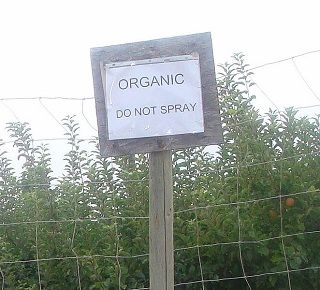From Guest Blogger Luke Clum: Sustainability Isn't Just About the Environment
Once the stuff of a marginalized green movement, these days the word “sustainability” is just about everywhere you look. This is particularly true in marketing materials for agriculture businesses, in a hurry to out-green one another.
But sustainable farming doesn’t stop with the chemicals farmers do (or don’t) use; in fact, considering the environment is just one (albeit, very important) slice of the sustainability pie. Truly green farming considers the farmer as well as the product; in fact, sometimes that means putting the people above the product altogether. Let’s take a deeper look at the full range of principles that truly make an agribusiness sustainable, starting with the grounding principles as espoused by two well-known sustainable companies and working up.
1. Build Environmental Standards into the Business Model
Of course, no examination of sustainability would be complete without first understanding the kinds of environmental practices that can truly be sustained in a world with shrinking resources. The farm direct flower company, Flower Muse, makes an excellent case study, as they take such measures as using the best known water purification practices and rely on organic fertilizers. Still, even these practices are more topical when compared to deeper principles baked into the company’s business model:
• Constant research Flower Muse doesn’t wait for new products to come to market, nor do they rely on third party suppliers with questionable green credentials. Instead, the company works with farms who constantly develop organic fertilizers and research new sustainable methods for pest control. Most recently this has included using “good” mites” to kill “bad” mites that destroy roses, rather than using chemicals that have long-term, cascading effects on human health and the environment.
• Farm direct model Ask most flower companies where their products have been, and they’ll likely give you a vague answer. That’s because those flowers have been shipped from overseas and left to sit in warehouses and pass through the hands of any number of middlemen before a shipment is big enough to go out. This is the primary reason why most flowers wilt within a few days of delivery without the help of chemicals to keep them fresh. In contrast, Flower Muse invests its time and energy into developing the best handling practices for just picked flowers and shipping them directly to their customers, leading to a much longer vase life without the use of anything artificial.
In almost every way, infusing sustainability into the business model benefits the customer just as much as the seller and the environment.
2. Educate Farmers
While many companies set lofty goals for their supply chains, it’s not often that they involve themselves in communicating the how of this bigger why. Farmers are instead given standards they must meet, and no training on how they might do so. Except in the case of the British company, Sainsbury’s, which began work on a carbon reduction initiative back in 2007. The initiative has met great success thanks to the company’s willingness to train farmers on carbon cutting measures.
• Create opportunities for farmers to share their discoveries, thereby widening the farmer brain trust and providing a means for them to make change within their own community and become an active, contributing member of the initiative, rather than people simply made to follow orders.
• Provide assessors No initiative is worth much without data examining whether or not it’s actually working. Sainsbury’s provides assessors for all of its farmers, many of whom have seen their costs cut along with their carbon emissions.
3. Take Care of Farmers
While education in regards to farming practices has a clear connection to the health of the company, companies with a social mission also maintain that full support for more general education and a farmer’s quality of life is also crucial. Why? Because making both a farm and a larger argribusiness fully sustainable means fostering community-driven, bottom up change. And for that, an educated, well-looked after workforce is a necessity. The farmers, after all, are the real experts; it is the job of the larger corporate agribusiness to provide the tools and environment they need in order to thrive. For companies like Flower Muse, that means working with farms that provide daycare, housing, food and education for farmers’ families. Build respect, and environmentalism will naturally follow.
Take Away
Of course, environmentalism is, and should be, at the heart of any sustainable agriculture practices. But the environment and people are inherently connected, whether we’re talking about the farmers who directly work on the land or the consumers on the far end of the supply chain. True sustainability means considering both the land and the people, at a deep, systemic level. That is the stuff of real and lasting change.

